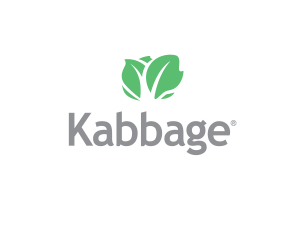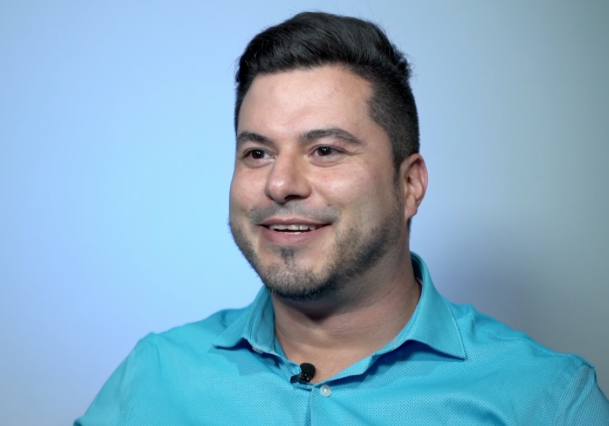Articles by Adam Zaki
Adam is a Reporter from Long Island and graduate of Brooklyn College.
Brokers, Funders Find Their Footing and It’s Back to Business
April 12, 2022 For Mike Brooks, CEO of Best Connect Capital, the deal making never stops. A former boxing trainer turned funder said that there are no days off. “I’m always funding, I am always, always funding,” he said.
For Mike Brooks, CEO of Best Connect Capital, the deal making never stops. A former boxing trainer turned funder said that there are no days off. “I’m always funding, I am always, always funding,” he said.
Recently, Brooks has taken an interest in text message marketing. “I’ve had trouble finding somebody in text marketing,” he said. I was going on the internet and using word of mouth, and I wasn’t really able to connect with anybody. I hooked up with this company [in Miami], and it worked out really well. I already funded a couple of deals.”
Around the industry, brokers and funders have found their footing after Covid. A recent mass gathering in Miami definitely helped push things along. “The second I got off the plane in Miami this year, I saw an old friend, a business associate,” said Brooks. “That was a great connect right there.”
Nicholas Saccone, Senior Funding Advisor at Proto Financial had a similar experience. “Having the opportunity to meet up with some of our partners face-to-face [is] a really cool experience,” said Saccone. “Sometimes it is hard to find time to build relationships with all of our schedules. [Through networking] I’m able to get different perspectives on where the industry is headed and where we are now.”
“Small business lending is on the up and up,” said Frankie DiAntonio, CEO of Lexington Capital, who also ventured down to Miami with his team from Long Island. “With inflation going up, we’re finding that small businesses are outsourcing their need of funding outside the government, and there are companies like us that can come in and take care of them.”
DiAntonio spoke about how important it is to sell legitimacy to both his lenders and staff. “We’re the new kids on the block, we’re a newer company,” he said. Despite the head start his competitors may have, DiAntonio said that old school sales mentalities combined with modern marketing strategies have recently helped his company consistently fund deals and build a book of business.
“We bring in a lot of Google click ads which brings us a lot of leads, but obviously our guys just make phone calls throughout the day, as much as humanly possible,” DiAntonio said. “My guys know what they’re doing, they know the industry, they’re really good on the phones, and they know how to take care of customers.”
Alchemy’s Lending Tech Has Come to the Small Business Lending Market: Here’s What You Need to Know
April 7, 2022 “We are the salesforce for embedded finance.”
“We are the salesforce for embedded finance.”
Timothy Li, CEO of Alchemy, has launched a financing software for both commercial and small business lenders that can automatically approve applicants through an integrated decision engine. The service offers what he calls a “soup to nuts” digital lending platform — offering lines of credit, installment loans, and even loan servicing.
For the past six years, Li has been building a suite of products for those who want to sell financing. He compared his product to what many companies are now offering in the form of Buy Now Pay Later. As his service began to grow, Li realized there was an “extension” of potential with his service.
“[The] extension of this is that some of the small businesses also happened to be small business lenders,” he said.
According to him, he created the service not as an idea of innovation, but to meet a growing demand from his users. “I heard from all of the small business lenders in the New York area,” said Li. “They said ‘Tim, could you augment or come up with a piece of software fully automated for us to use’”?
Although it took some time, Li said this recent announcement is what the lenders that came to him years ago were looking for. “I said well, we’re almost there, give me a year or two to kind of really properly do it right. So that’s what we’ve done.”
In what he refers to as “private labeled” software, Alchemy’s Lending SaaS (or Lending-as-a-Service) allows merchants and lenders alike to operate a fully branded and operational lending platform with a full suite of financial products. Customers range from tattoo removal companies to lenders, to companies that have now grown to become publicly traded.
The ability to literally send Alchemy a JPEG of some branding and marketing and becoming on online lender is as easy as just that. “Anybody can put their label on and have [their lending platform] up and going in a matter of weeks,” said Li.
When speaking about the role ISO’s play alongside his technology, Li didn’t dismiss the value brokers play in the small business lending industry. “The good ol’ ISO model is great,” he said. “It’s great that there is a product like this that can help [merchants] grow and drive their company. But as the new generation comes in, they don’t have time. They might be on their phone for five minutes after they close their store or small business, and these kind of products are out there sitting there for them to apply for on their own time.”
Li hinted that his product is best utilized by merchants who are digitally-native and are looking to have access to data quickly, while being given the time to make a decision regarding the type of financial product best suited to their business.
“[Alchemy] lets them pick what they want to pick based on their own cash flow,” he said. “It’s no longer that there will be a sales process where things aren’t as transparent. The ‘I am not going to tell you who my lender is until I’m paid,’ [thing], you know how the ISO world works. This stuff takes all of that away, and puts it right in the hands of the consumer that needs it.”
When asked if brokers could find any use of this product, Li said that if used right, the value proposition for brokers that use this software is huge.
“Brokers can use our system just like any other lender. If they want to have another way to be able to market to these small businesses, and have them use their products more. It’s essentially HubSpot for financing.”
Canadian Fintech Continues to Soar as Open Banking Comes to Fruition
April 5, 2022
After seemingly endless deliberation, Canadian open banking is finally being implemented; a huge win for the already high-performing fintechs that call Canada home.
After overcoming laws that prevented access to the data that fintechs need to innovate, the Department of Finance in Canada named Abraham Tachjian as the open banking lead as of last week, in another legitimate step towards incorporating open banking within their legacy financial institutions.
This comes on top of Canadian fintech’s major impact both in Canada and abroad. Canadian companies in the space of lending, payments, banking, and crypto have been some of the best performing and most innovative companies around the world, despite not being able to leverage open banking in their innovation strategies within Canada until now.
In a release from the Canadian government, Randy Boissonnault, the Minister of Tourism and Associate Minister of Finance, commented broadly on open banking’s implementation of the new system.
“Canadians deserve a secure open banking system that is regulated, efficient, and protects their personal information,” said Boissonnault. “This is an important next step in the process of implementing the Advisory Committee’s recommendations, in order to convene stakeholders to design and implement the foundational elements of an open banking system that benefits both Canadians and businesses.”
As the laws are being put in place, Canadian fintech continues to soar. According to a recent LinkedIn post from Tal Schwartz, Senior Project Manager at Noomis Solutions and formerly of the Canadian Lenders Association, Canadian banking and fintech continues to lead the way globally.
In all the niches in finance, Canadian companies seem to have their name on the top of list. Corporate card companies like Jeeves is now with over $2B, Canadian Venture Capitalist firm Portage Ventures is one of the world’s largest with $4B in assets.
Online stock trading platform Questrade Financial Group has begun to offer mortgages. Their competitor Wealthsimple, another Canadian stock trading platform, has also said that mortgages are on the way alongside a big push into lending.
In the US, Canadian-giant TD Bank became the 6th largest bank in the states with recent acquisitions of First Horizon Bank in late February.
Apart from the success of companies themselves, a sign that the Canadian fintech space is doing well is a desire to reconnect in person. The CLA’s Leaders in Lending Summit was recently announced for mid-November, a gathering of a sector of Canadian finance whose future was doubted after pandemic-induced restrictions on their industry. deBanked reporters will be attendees of the event.
BNPL Survey says 25% of Customers are “Financially Vulnerable”
April 3, 2022 The Financial Health Network, an organization that attempts to quantify the nation’s financial health, recently released the results of their first truly nationally representative survey titled Buy Now, Pay Later: Implications for Financial Health. The survey seeks to understand who uses Buy Now Pay Later (BNPL) and their experiences with the service, and touched on what kind of financial habits are coming about for those BNPL use.
The Financial Health Network, an organization that attempts to quantify the nation’s financial health, recently released the results of their first truly nationally representative survey titled Buy Now, Pay Later: Implications for Financial Health. The survey seeks to understand who uses Buy Now Pay Later (BNPL) and their experiences with the service, and touched on what kind of financial habits are coming about for those BNPL use.
“Buy Now Pay Later could be a mixed bag for consumers–on the one hand it provides a convenient and low-cost way for consumers to finance purchases, but there are customers who are using BNPL to make purchases they would not otherwise make,” said Meghan Greene, director of research at Financial Health Network.
According to the release, the data found that roughly one in four users of BNPL are financially vulnerable. Out of this group, a quarter of BNPL users reported struggling to make payments. With this, the survey later mentions that 92% of users reported no difficulty making payments, and 99% stated that they understood the terms and conditions of the product.
“It’s still too early to know the full impact of BNPL on the financial health of consumers, but we do see potential warning signs in the number of consumers,” Greene said. “Particularly those who are already financially vulnerable, who report struggling to make repayments.”
Out of those surveyed, 47% said they would not have made a purchase or spent more than they otherwise would have spent had BNPL not been available. With this being said, it seems that BNPL executives are getting exactly what their product is marketed to retailers to do.
There are many types of plans using the BNPL label ranging from plans which divide payments into four installments with no interest charge (“pay in four”) to longer-term installment loans. Companies like Ikea, Walmart, Urban Outfitters, and thousands of other global businesses have gotten into offering these financial products.
Other interesting finding from the survey are below-
–Short-term BNPL users reported owing an average balance of $330.
–10% of households report having used BNPL in the 12 months prior to November 2021, a significant deviation from other published estimates. Of these, 70% report using a short-term, no-interest BNPL plan.
–Younger and less financially healthy households are more likely to use BNPL. Financially Vulnerable households, as measured using the Financial Health Network’s innovative FinHealth Score(R), are nearly four times more likely to use BNPL than Financially Healthy households (18% vs. 5%). In fact, almost one-quarter (24%) of BNPL users are Financially Vulnerable.
–Despite the recent emergence of BNPL in the United States, almost half (46%) of users had used BNPL three or more times in the previous 12 months, as of November 2021.
–Total U.S. consumer spending on interest and fees from BNPL in 2021 is estimated at less than $1 billion, a small fraction of the estimated $95 billion spent on revolving credit card balances.
–Over 20% of BNPL users do not have or do not use credit cards (roughly the same as non-users).
–More than 40% report having subprime credit scores.
–One in three users of BNPL report that they would not have made the purchase if BNPL were not available. Among Financially Vulnerable BNPL users, over 60% said they would not have made the purchase without BNPL.
Five Takeaways from deBanked CONNECT MIAMI
March 31, 2022 Among the networking, dealmaking, and new connections made at deBanked CONNECT MIAMI last week, conversations were had that touched on the past, present and future of the small business finance space. Those in attendance had all different types of ideas of where and how tomorrow’s deals will be funded.
Among the networking, dealmaking, and new connections made at deBanked CONNECT MIAMI last week, conversations were had that touched on the past, present and future of the small business finance space. Those in attendance had all different types of ideas of where and how tomorrow’s deals will be funded.
Below are five takeaways from the industry’s most heavily trafficked event in South Florida this year.
-Networking is still key
In an industry dependent on making connections, events like these hold such a value to anybody looking to close deals. While the internet has taken geographic restrictions out of doing business, shaking hands and conversing in-person still holds true as the most valuable form of communication in both a personal and professional setting.
-Miami won’t replace everywhere else
It seems that the city that once opened its gates to alternative finance has now decided to pivot towards crypto. There’s strong interest in DeFi among those who live and work in Miami, especially the Floridians that attended the event. Several non-Floridian attendees were quick to argue that although the Miami weather and lifestyle is nice for a change of pace, it couldn’t replace their current residences. The idea of a satellite office in the Miami area didn’t sound like a bad thing to anybody, however.
-The disclosure impact is unclear
As disclosure laws pop up all over the country, it seems brokers and funders alike expressed little concern that it would lead to sweeping changes. Whether it’s a matter of awareness or an apathy derived from ongoing rollout delays in larger states, talk about governmental changes prompted little to no commentary.
-Brokers galore
It felt like there were more brokers at deBanked CONNECT Miami than at other deBanked events in the past. The sponsor showcase rooms on both sides were overflowing with brokers of all different experience levels and backgrounds. Brokers from the Miami area, New York, California, and Texas all said they were there to find new funders to work with. Funders that shared their thoughts said that they felt like this show was the most productive and beneficial one for them because of the amount of brokers in attendance.
-The people wanted more!
The genuine desire to make connections with potential business in a shared experience is real. People were not only making connections for future deals, but catching up with old friends. Many companies that attended the show had after parties that kept the event going after deBanked CONNECT had officially concluded. Brokers and funders alike wanted as much opportunity to speak in-person as possible.
Kabbage Survey Shows American SMBs Recovering Post-Pandemic
March 30, 2022
Kabbage from American Express issued the fifth Small Business Recovery Report, an online survey that tracks recovery trends and potential growth of small businesses in the US. Respondents represented industries across retail, marketing, healthcare, financial services, technology, food and beverage, construction, automotive, manufacturing, media, professional services, education, agriculture and more.
After polling 563 small business leaders that included 255 of the “smallest small businesses,” the latest report showcases how many small businesses are doing well in a changing market, as they look beyond challenges over the past two years while simultaneously overcoming the new problems of inflation and supply chain issues.
“Small businesses are preparing for a new type of market. One that’s not driven by the direct impact of COVID-19 – but rather, one determined by the economic aftermath of the pandemic,” said Kathryn Petralia, co-founder of Kabbage. “Economic indicators like inflation will require adjustments, but the new data illustrates how small businesses are making changes and adapting.”
According to the study, small businesses are becoming less concerned about COVID-19’s impact on their operations. The report’s responses showed over 90% of businesses did not have to “stop, slow, limit or shut down” their companies due to the Omicron outbreaks during the holiday season of 2021, while 70% surveyed said they weren’t affected by the variant in any way.
Along with pandemic-induced wounds beginning to heal for small business, respondents to the survey reported their average monthly revenues increased 77% in the past six months, from $47,900 in July 2021 to $84,935 in February 2022. Along with those increases, merchants reported average monthly profits have increased an average of 39% in the same period as well. The study does hint that these growth percentages are heavily weighted toward larger small businesses.
Kabbage says that the smallest small businesses, those with 20 or less employees, reported a 13% increase in average monthly revenues and a 12% increase in average monthly profits from July 2021 to February of this year.
The report touched on hiring rates for smaller merchants, as an initial void of lost workers has been filled. Despite a widespread notion of the job market being wide open, the study found that three quarters of the smallest small businesses said they are not hiring.
The study also found that inflation is increasing prices by an average of 21% across industries. Largely due to increased costs from their vendors and skyrocketing cost of raw materials, smaller merchants are beginning to push these costs on customers.
65% of businesses in the survey said they plan to keep prices high for the next six months, while almost 20% said they plan to raise prices further. Combating increasing costs of their own is an issue in and of itself, and over half (53%) expect their business to be impacted by supply chain issues for up to a year.
Irish Lending is Making a Comeback Despite ILCU’s Request for Less Regulation
March 22, 2022 In what some have called the financial services capital of Europe, Ireland’s financial sector has been making a serious comeback since its pandemic-induced slumps. Despite a recent release from the Central Bank of Ireland (CBI) saying that small business lending was making a serious comeback, credit unions throughout the country are pleading with regulators to remove “handcuffs” and allow them to fund their local merchants.
In what some have called the financial services capital of Europe, Ireland’s financial sector has been making a serious comeback since its pandemic-induced slumps. Despite a recent release from the Central Bank of Ireland (CBI) saying that small business lending was making a serious comeback, credit unions throughout the country are pleading with regulators to remove “handcuffs” and allow them to fund their local merchants.
Current regulations enforced by the CBI limit both mortgage and small business lending to banks at 7.5% of the credit union’s total assets.
The Irish League of Credit Unions (ILCU) has said that credit unions are prevented from expanding into the mortgage market because of restrictive lending limits. While the effort comes across as a desire for credit unions to have more flexibility in mortgage options, small business lending has been tied into the deal and thus a part of the movement to get these regulations lifted.
According to the CBI’s data, net lending to small business owners in Ireland was €91m in the fourth quarter, reversing consecutive decreases from the previous two quarters. Estimated repayments by Irish SMEs were the lowest on record over the year as well, to the tune of €4.2 b.
As the data portrays, Irish lending is chugging its way back to normalcy. While the CBI appears to believe that the current system in place is working just fine, the credit unions are making a case that they can help speed up the Irish economy’s recovery process by being able to get a slice of the lending pie.
The ILCU recently responded to remarks made by minister of State Sean Fleming, who when speaking on credit union involvement in lending, encouraged their participation. “Credit unions should fill the gap left by the departures of Ulster Bank and KBC from the Irish market and start lending more mortgages.”
Fleming also included a claim that credit unions are “not doing enough of lending” in his remarks.
In response, ILCU deputy chief executive David Malone cited these regulations that the group has been fighting against as the cause for Fleming’s accusation.
“In order for credit unions to become community banks, and to really engage in the mortgage market, the ILCU is asking Minister Fleming to address the imbalance caused by the restrictive regulatory lending regime in his soon-to-be-published review of the policy framework within which credit unions operate,” said Malone.
Ireland has notably made some big moves in regards to supporting, financing, and government investing of fintech companies from both Ireland and abroad. As the country continues to come out of the financial hardships of the pandemic while also working in the contemporary European financial ecosystem, the CBI doesn’t appear to be lifting any regulation anytime soon, as long as lending numbers keep creeping back to normal.
Reality TV Loan Broker Shares What Happened After the Show
March 17, 2022 Juan Carlos Marcano’s experience on Equipping the Dream has given his loan brokering career a major jumpstart.
Juan Carlos Marcano’s experience on Equipping the Dream has given his loan brokering career a major jumpstart.In a chat with Juan Carlos Marcano this week, the Equipping The Dream broker who became a fan favorite for his personality and demeanor, it was learned that he’s been up to some interesting stuff since he appeared in deBanked’s first reality show. While operating JFK Business Financing in Dallas, Texas, Marcano shared that he is still in cahoots with some of the other participants in the show.
“I closed five deals last week,” said Marcano, when asked about what happened after he left the training office of Everlasting Capital. “After filming the show, I started with Will and Josh,” he said in reference to the two partners of Everlasting Capital. “They sent me leads, and I started closing.”
When asked what the Spanish speaking merchant needs most out of the small business financing industry, and more so Spanish speaking brokers like him, Marcano spoke about how these merchants just need service above all else. He spoke about how because of the language barrier, many of these merchants don’t have access to the same type of capital as an english-speaking business because there are not many people out there to go ask for it in their language.
 Marcano awaited the final results of the one-week training competition at Everlasting Capital while wearing the flag of Venezuela as a cape, his native country.
Marcano awaited the final results of the one-week training competition at Everlasting Capital while wearing the flag of Venezuela as a cape, his native country.When asked if he is working exclusively with the brokerage from the show or if has future plans to expand his business, Juan spoke like a true broker. “I’m open to hearing from other funders and brokers about doing more deals,” he said.
“I will use the leads I get from [Everlasting] to help build my business in that industry,” said Marcano. “I’m starting to get better and better. When I get my cash flow going on and up, I’m setting a plan with a strategy to build my own details. I just need to get better with my website, social media, everything here is marketing.”
He said one major advantage of being a small shop is the potential he has as a broker in where he can live and do business. Currently a Dallas resident, Marcano sees a future in multiple cities. “I want to open up businesses in Miami,” he said, “but as I think about it, I’d like to open up a business in New York too.”
When asked about how he will compete with big tech’s emergence into small business lending, Marcano highlighted customer service and personality are the key to success for companies like his.
“For me, it’s all about providing great service. It’s all about five star service.”
You can meet Marcano at deBanked Connect Miami on March 24, where he alongside the cast of Equipping the Dream will be in attendance.
































